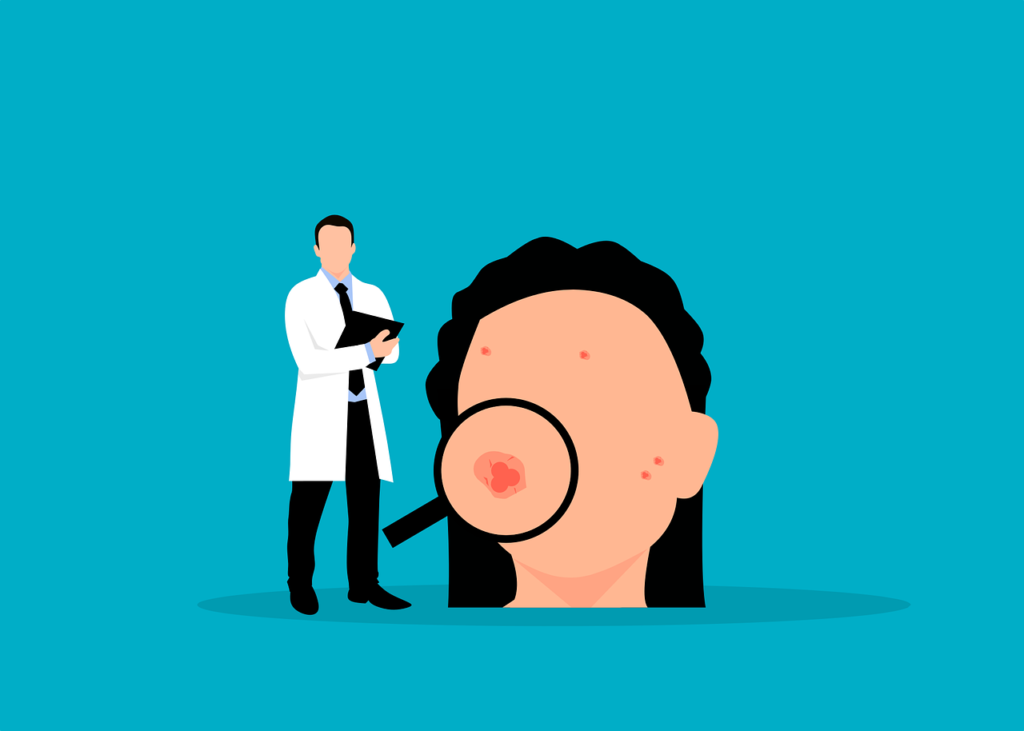Cancer treatment can have a variety of effects on the skin, depending on the type of treatment being used. Some common side effects include dryness, itching, and redness.
Radiation therapy can cause the skin in the treatment area to become red, swollen, and tender. The skin may also become dry, itchy, and flaky. In some cases, radiation therapy can cause the skin to blister and peel.
Chemotherapy can also cause skin changes. The drugs used in chemotherapy can make the skin dry and sensitive to sunlight. Some people may develop a rash or other skin reactions while undergoing chemotherapy.
Immunotherapy, a newer type of treatment, can also cause skin changes. Common side effects include rashes, dryness, and itching.
In addition to these side effects, cancer treatment can also make the skin more susceptible to infection. It is important to take good care of the skin during treatment, by keeping it clean and moisturized and protecting it from the sun.
It is important to let your healthcare provider know if you are experiencing any skin changes during cancer treatment. They can provide advice on how to manage these side effects and can monitor for any signs of infection.
One of cancer’s most challenging aspects is managing its effects on your overall appearance. Treatments such as radiation and chemotherapy can change your skin’s texture, color, and elasticity. In addition, certain types of cancer may prompt your doctor to recommend that you take extra steps to protect your skin from further damage. Here are some tips for taking care of your skin with cancer.
Consider Your Treatment Options
Depending on the type and stage of your cancer, you may need to consider mohs surgery. Mohs Surgery is a form of skin cancer treatment that surgically removes thin layers of tissue until all affected areas are completely removed. Talk to your doctor about what treatment might work best for you and how those treatments will affect your skin.
Sun Protection
One of the most important things you can do when you have skin cancer is to protect yourself from further sun damage. This means using sunscreen with an SPF of at least 30 every day and avoiding prolonged exposure to direct sunlight. In addition, wear a wide-brimmed hat outdoors, and stay out of direct sunlight during peak hours (10 am-3 pm). Opt for clothing with UPF (ultraviolet protection factor) ratings that provide additional protection from UV rays. Additionally, consider wearing sunglasses that block 100 percent UVA/UVB rays and a lip balm with SPF 15 or higher whenever you’re outdoors.
Moisturizing
Skin treatments such as radiation therapy can cause dryness and flaking, so it’s essential to keep your skin moisturized at all times. Look for moisturizers specifically designed for sensitive or damaged skin; these usually contain ingredients like aloe vera and jojoba oil, which can help soothe inflamed areas. Make sure to apply generously after bathing or showering while the skin is still damp to lock in moisture more effectively. It’s also a good idea to use a moisturizer before going outside so that your skin has an extra layer of protection against the elements.
Cleansing
It’s essential to keep your skin clean if you want it to remain healthy during treatment. Choose gentle cleansers that do not contain harsh chemicals or fragrances, as these can irritate sensitive areas. Use lukewarm water rather than hot water when washing your face—hot water strips away natural oils more quickly than cooler temperatures—and avoid scrubbing too hard with facial scrubs or washcloths; this could cause further irritation or open wounds that could soon become infected later on. When finished washing, pat dry rather than rub so as not to disturb any flakes or scabs that may be present on the surface of the skin.
Taking good care of your skin is especially important if you have been diagnosed with cancer; doing so will help minimize discomfort and prevent additional damage from occurring due to sun exposure or other environmental factors. Regularly applying sunscreen and moisturizing products will help keep your complexion looking its best throughout treatment without placing extra strain on already fragile areas of the body; coupled with gentle cleansing routines and protective garments such as hats and sunglasses, these simple steps will go a long way towards keeping your skin healthy during this difficult time in life.





